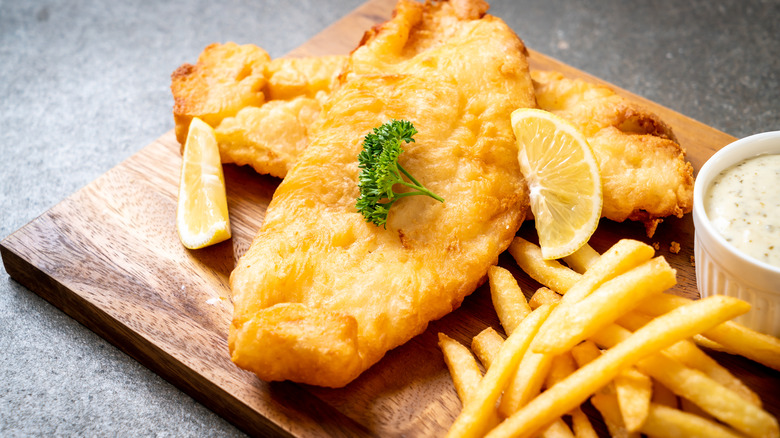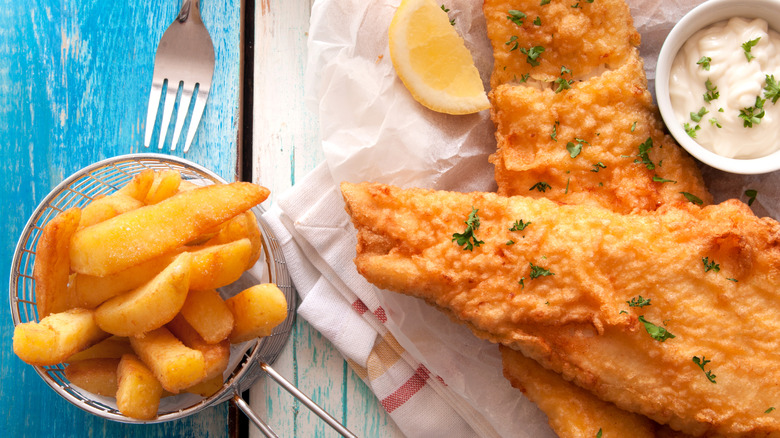How Fish And Chips Played An Important Role In WWI And WWII
If you asked people what they thought of when you said, "British Foods," chances are you'd probably get fish and chips as one of the top answers. The battered fish is deep-fried to a golden brown and served with thick-cut potatoes and is a popular meal in the U.K. as a take-away food. The love the British have for fish and chips is not exaggerated. The Great British Mag reports that every year, 382 million servings are sold at shops that specialize in the dish.
There have been attempts to sell fish and chips to the American public from seafood shacks like Long John Silvers and the once-famous but now somewhat obscure Arthur Treacher's, but our British neighbors can lay claim to being the most loyal to their deep-fried duo. Despite sounding like nothing more than a quick fried snack, much like how we treat cheeseburgers and fries, fish and chips actually played a key role for the citizens of England back in World War II and even farther back in World War I.
Fish and chips were deemed too important to be rationed
During both World Wars, both the Americans and the British practiced food rationing while food and supplies were sent to soldiers across Europe and beyond. According to the Imperial War Museum, people needed coupons from ration books to acquire scarce items like sugar, meat, fat, and cheese. People were even encouraged to cultivate their own "Victory gardens" to supply themselves with vegetables to free up the short supplies of fresh produce. Yet, fish and chips were never rationed — in fact, the dish was even considered a key element to maintaining British morale. War History Online explains that the English government did its best to supply citizens and soldiers with the popular dish, even as the price of fish increased and a shortage of fat for good frying developed.
The relatively wide availability of their favorite dish helped to boost British morale, especially with the reports that Germany was suffering from its own food shortages (via Fishers London). In World War I, Belgian caterers provided British troops with large amounts of oil-fried potatoes. In fact, fish and chips were reportedly used as a sort of call sign between friendly troops. One would shout, "Fish," and the other, provided they were an ally, would yell back, "Chips." While it was the bravery and courage of ordinary people that helped to turn the tides of both wars, fish and chips helped to ensure that the patriotic spirits of the English never faltered.

